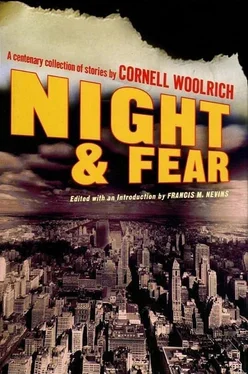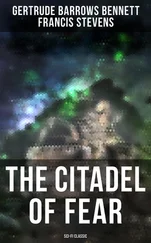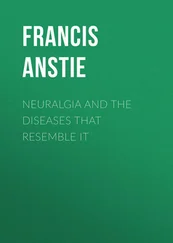What good would keeping them do him, anyway? If he needed to sell them, he’d probably be arrested in the act, or within a few hours. And he couldn’t keep the things hidden around him indefinitely, skulking, afraid of every shadow. That bartender already knew he had them. Pretty soon half the Bowery would know.
With a sudden decision he jumped up, unlocked the door, and ran down the stairs. He had fifteen cents left. He’d tell the cops about it over the phone and then wait for them to come and get him. That took less courage than going to them himself.
There wasn’t any phone in the place, and he had to go out on the streets to look for one. That was his undoing. He failed to notice the long, ominous black car parked directly in front of the Federal, the first bar he’d gone into. The Federal’s customers didn’t usually drive up in cars like that. But his mind was now finding one of those little blue-and-white enamel disks that verify a pay station inside the premises, few and far between on the Bowery, and he missed the significance of the car’s presence.
He turned up the other way and finally found a phone in an all-night one-arm joint. It was just his luck it had to be on the open wall, not in a booth at all. And there were a couple of guys within earshot. But it was the only one for blocks around, and he had no choice. He shrank from the idea of hunting up a cop on the beat and telling him. It might be an hour before he located one, and then the cop might turn around and say that he’d caught Keogh with the stones and take all the credit to himself.
Keogh dropped his nickel in and made a protective funnel around the mouthpiece with his hand, to keep what he had to say from those in the room. He asked for Spring 7-3100. He supposed that was the way you did it; he’d never called the police before.
A voice answered, ‘“Police Headquarters,” and he took a deep breath, afraid to go on, but even more afraid not to, now that he’d gone this far. He said, “Uh... I wanted to tell you about that necklace that was stolen from that lady. You know — that diamond one worth twenty-five thousand dollars?”
Another voice got on the wire abruptly, a more authoritative voice. “What about it?” the new voice demanded brusquely, sapping the little self-confidence he had left.
“I... I think I got it,” he quavered.
“You think you’ve got it! Who are you?”
He had visions of cops taking off by plane to land on his neck, while he was kept talking at the phone and the call was being traced.
“My name’s Keogh.” He hadn’t used his given name in so long he actually forgot it for a moment in his excitement! “I— Has it got fifteen diamonds in it? I found it in a sugar bowl up on Eighth Avenue.”
He was sweating again, all over, profusely. That sounded terrible. They’d never believe it. They’d arrest him, sure!
“I’m... I mean, I’ll be in a room on the third floor front of the Little America Hotel, here on the Bowery.” And then, supreme inaninity, “Should I wait there for you?”
The voice grew crushingly ironic. “Maybe you’d better.”
He hung up and went out. He had forebodings of what his immediate future was going to be like, yet in one way he was strangely relieved. He’d gotten the damn thing off his mind at last. In five or ten minutes more he wouldn’t have to worry what to do with it or where to hide it, any more. Even if the cops held him for it, at least those others couldn’t get to him.
The inscrutable black car had moved when he got back in sight of his lodgings. It wasn’t in front of the Federal any more. Now it was outside the Silver Flash. But he hadn’t noticed its position clearly enough the first time to be aware of the change. It never occurred to him that he was in a position to watch himself being traced. To his harassed gaze it was just a car, maybe belonging to some slumming party going the rounds bar by bar.
He turned in at the lighted doorway and started climbing. The second-floor “reception desk” — a board across an open alcove — was vacant and dark now, but that wasn’t surprising, considering the hour. He went past it and on up to the third floor.
It was when he got outside the door of his room that something cold came over him. First it was just a sixth sense, with nothing to base it on. Then a couple of the other senses came quickly to support that feeling. His eyes saw a three-sided line of light outlining the warped door. He was sure he’d put the light out when he left just now, for they bawled you out in these places if you didn’t. And his ears caught a subdued murmur of voices that rose to a snarl.
“He wouldn’t leave it around in here any place. You could look all night and not find it. He must ’a’ lamped us coming and powdered with it all over again.”
“You heard what that bartender said, din’cha? He saw him come in here! He’ll be back. And then there are ways of finding out—”
But Keogh didn’t wait to hear any more. Those weren’t the cops in that room, and that was all he cared about! His decision to go out and phone them had saved him from immediate capture, but now he had to flee again. Was there to be no end to his hobgoblin nightmare?
He started backing down the stairs, his heart hammering in his chest, afraid at first even to turn and face the other way for fear of making the steps creak under him. His breath labored in his throat. He would have moaned aloud if he hadn’t known the least sound meant his death.
Halfway down he steadied himself against the wall and slowly pivoted, to finish the descent the natural way and get out. But at the turn of the stairs there seemed to be a deeper shadow than there had been the first time, and suddenly it moved, came out behind him, blocked him, spoke. That same soft, maddening purr fell again on his ears.
“Thought I saw you from the car. Reg’lar night owl, ain’t you? Well, come on back up. We’re gonna put you to bed!”
And the gun was out once more and urging him up ahead of it, boring into the middle of his back. This was the end, and Keogh knew it, and acted it, there in the dark. The first bartender had seen the stones, the second one the links, and now they had him dead to rights. As soon as they got the diamonds from him they’d shoot him.
Repeatedly, as he tottered up that short remaining flight to his room, Keogh clasped both hands to the lower part of his face in mortal terror, and his jaws moved convulsively as if with hopeless prayers for mercy that he knew it was useless to utter.
A few steps more and, “I’ve got him,” purred the silk-voiced killer outside the door. A sudden square of orange opened noiselessly to swallow the two of them, then was blotted out again.
The blast of gunfire that would signal Keogh’s end was a strangely long time coming. Eight minutes passed, and then ten, and the short, sharp, barking coughs of an automatic that would mean they had found the diamonds and had no more use for Keogh, alive, did not come. And then, when the gunfire did come at last, it seemed more prolonged and violent than was necessary to finish off just one helpless man.
One bullet, one muffled explosion from a gun muzzle jammed cruelly into his ear would have been enough for that. But there was more than one shot, many of them, and they didn’t come from within the room itself, but from up and down those long, narrow stairs, shattering the sleeping lodging house awake from top to bottom.
And the shots came from two directions simultaneously, streaking downward from the top of the stairs and hurtling upward from the bottom, while yellow flashes winked and blinked in the darkness and the booming echoes of the shots rolled back and forth along the corridors.
In the first burst of fiery venom a policeman crumpled in the street entryway, and seconds later the body of a man came hurtling, turning, twisting down from above to join it, like something dropped from the sky down a long chute. He was dead by the time he hit the last step.
Читать дальше












